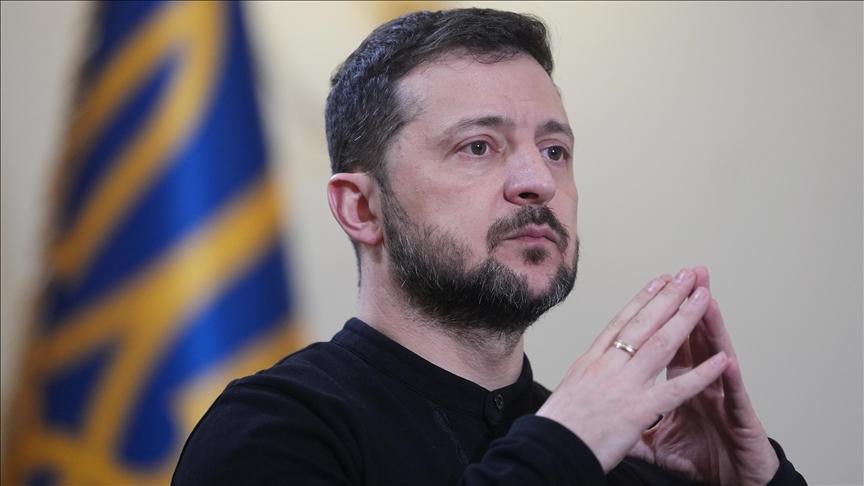Swamp and mosquitoes
Talking to reporters in Antalya on the sidelines of the G-20 Summit, European Commission President Jean-Claude Juncker made an important warning to European nations: No one should mix up the terrorists that staged the Paris attacks and the people seeking refuge in Europe fleeing the attacks by the very same groups back in their homeland.
The Paris attacks demonstrated the appalling security failure of France. The heinous terrorist attacks on civilians, which also underlined a determined vicious attempt by the Islamic State of Iraq and Levant (ISIL) gang to provoke a new “Crusade,” should not, of course, be confused with the immense refugee problem at hand. American President Barrack Obama, talking to media after a meeting with an army of Turks led by President Recep Tayyip Erdoğan, also underlined the primary task at hand: to fight ISIL while helping efforts to cope with the refugee crisis.
Despite some structural handicaps (such as the refusal to accept refugees from the east and giving Syrian migrants a generous “guest” status), Turkey has been rather munificent towards the refugees. The country has spent almost eight billion euros over the past four years for the over 2.2 million Syrian refugees it has been sheltering. What is more important is the fact that the Turkish nation, which itself has many problems, has been trying to embrace refugees as warmly as possible. From time to time some nasty developments naturally take place among the refugees and Turks, but it must be considered as well that in some border towns, such as Kilis, the number of refugees has exceeded that of the local townspeople.
The Vienna talks and the tentative agreement for the timetable of an 18-month process to transform Syria from its current calamity into some sort of normalcy, was an indication of the Russian successful comeback to the Middle East. Though it has been rather dangerous and detested very much by the U.S. and the rest of the West, with Russia starting a while ago to undertake “pro-Assad” aerial operations against not only ISIL but apparently also against the “moderate” Islamist opposition elements, Moscow has made a strong comeback to the region. An eminent analyst talking to this writer was stressing something very important this weekend. The Vienna talks ended not only with a schedule but with a definition of the new Syria to be established after the transition: A secular country.
Perhaps it was the first time that the principle of secularism found itself a place in an agreement of the global and regional powers for a transitional process of a Middle Eastern country. Why was it that important? The answer was delivered in Paris and hopefully will not be repeated anywhere else. Political Islam of all sorts and religion exploited to achieve some political obsessive aims is, was and will be the main enemy of Muslim societies. The principle of secularism is the only institution that can enable a Muslim society to maintain its religion, religious culture and traditions while at the same time embrace democracy and individual freedoms.
Should not the French, British and other Western governments from whose counties hundreds and hundreds of young jihadists have been travelling through Turkey, Cyprus and other countries to join ISIL or Daesh (the Arabic abbreviation of the gang and the wildest beast this region ever saw) explore why these peoples are making such a suicidal decision? How might it be possible that people who grew up in a democratic culture accept becoming suicide killers of an obsessive religious criminal gang?
Two of the terrorists that undertook the Paris bombings were said to be Syrian refugees. One is said to have travelled to France after entering Europe from a Greek island. Did he travel through Turkey to Greece?
Obviously Turkey must take more effective measures to stop this refugee trafficking to Greece. But, the third assassin was reportedly a French national. Very much like the Oct. 10 Ankara bombings, a local man was involved in the heinous development. How could someone undertake such a massive act of murder?
Obviously, there was intelligence deficiency in Ankara, as well as in Paris.
But apart from an intelligence deficiency, people in governing positions must ask themselves a key question: Don’t they have a share in the makeup of this tragedy?
The Arab Spring’s devastating fire. Bombings of Iraq, Afghanistan, Libya, Syria. Growing Islamophobia and xenophobia in Western societies. Governments turning a blind eye to young and desperate people joining terrorist gangs and politicians so squalid to say increasing terrorism is boosting their popular support… Is there a need to continue further the list of “contributing elements” of this dastardly situation?
Now the French expect an overall or at least comprehensive aerial bombing of Syria positions of ISIL to avenge the Paris attacks. As long as the swamp is there, there will be mosquito attacks. The target ought to be finding a peaceful way of resolving the Syria quagmire.











